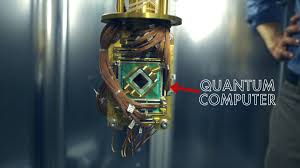
Breaking News
 At Least 10 Children Killed by Israeli Drones While Waiting Outside Clinic for Medical Aid and Food
At Least 10 Children Killed by Israeli Drones While Waiting Outside Clinic for Medical Aid and Food
 IRS Gives Churches Blessing to Endorse Candidates
IRS Gives Churches Blessing to Endorse Candidates
 17 Out-Of-Place Artifacts That Suggest High-Tech Civilizations Existed Thousands (Or Millions)...
17 Out-Of-Place Artifacts That Suggest High-Tech Civilizations Existed Thousands (Or Millions)...
Top Tech News
Magic mushrooms may hold the secret to longevity: Psilocybin extends lifespan by 57%...
 Unitree G1 vs Boston Dynamics Atlas vs Optimus Gen 2 Robot– Who Wins?
Unitree G1 vs Boston Dynamics Atlas vs Optimus Gen 2 Robot– Who Wins?
 LFP Battery Fire Safety: What You NEED to Know
LFP Battery Fire Safety: What You NEED to Know
 Final Summer Solar Panel Test: Bifacial Optimization. Save Money w/ These Results!
Final Summer Solar Panel Test: Bifacial Optimization. Save Money w/ These Results!
 MEDICAL MIRACLE IN JAPAN: Paralyzed Man Stands Again After Revolutionary Stem Cell Treatment!
MEDICAL MIRACLE IN JAPAN: Paralyzed Man Stands Again After Revolutionary Stem Cell Treatment!
 Insulator Becomes Conducting Semiconductor And Could Make Superelastic Silicone Solar Panels
Insulator Becomes Conducting Semiconductor And Could Make Superelastic Silicone Solar Panels
 Slate Truck's Under $20,000 Price Tag Just Became A Political Casualty
Slate Truck's Under $20,000 Price Tag Just Became A Political Casualty
 Wisdom Teeth Contain Unique Stem Cell That Can Form Cartilage, Neurons, and Heart Tissue
Wisdom Teeth Contain Unique Stem Cell That Can Form Cartilage, Neurons, and Heart Tissue
 Hay fever breakthrough: 'Molecular shield' blocks allergy trigger at the site
Hay fever breakthrough: 'Molecular shield' blocks allergy trigger at the site
Andy Rubin: One AI Quantum Computer Could Run Entire Global Internet Of Things

Just one quantum computer running artificial intelligence algorithms would be capable of connecting pretty much all the devices on the planet, Android creator Andy Rubin told an audience at the Bloomberg Technology Conference on Tuesday.
Rubin, who also launched Google's efforts in robotics, is now CEO of Playground, which together with Redpoint Ventures has invested in an unnamed startup working on quantum computing.
Working in concert, AI and quantum computing could yield a conscious intelligence that would underpin every piece of technology, Rubin suggested.
New computing platforms emerge every 10-12 years, and the next platform will be based on data and people training AI systems to learn, Rubin said.
"Yes, we're moving towards intelligent solutions, some of which will be locally controlled and others network controlled, on the edge of the network or in the cloud," said Jim McGregor, principal analyst at Tirias Research.
"But that intelligence just applies to the function of the device," McGregor told the E-Commerce Times. "It's not like your toaster is going to be able to perform quantum mechanics."
Rubin's vision extrapolates the way the Internet of Things could evolve.
Internet-connected household appliances already are available on the market, as are Web-connected hubs such as Amazon's Echo and Google's Home.
Google, Microsoft, Facebook and Amazon are battling for dominance in the smart home market, which will hit nearly US$122 billion by 2022, according to Markets and Markets.
Those companies, along with major automakers around the globe, also are fighting for position in the connected car market, which is projected to hit more than 70 million units by 2020, according to Global Industry Analysts.

 WHAT HAPPENED TO TRUMP?
WHAT HAPPENED TO TRUMP? AI Getting Better at Medical Diagnosis
AI Getting Better at Medical Diagnosis

